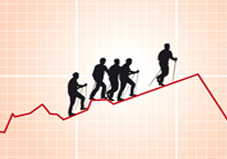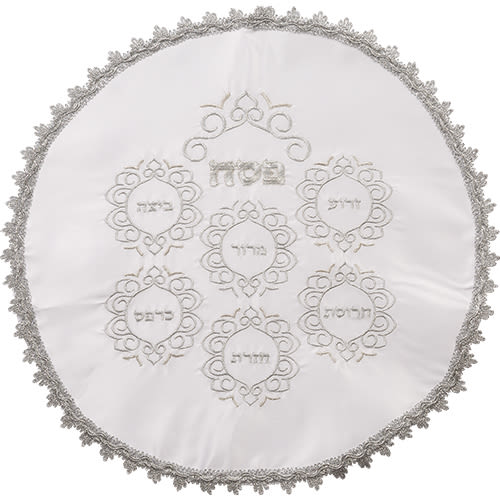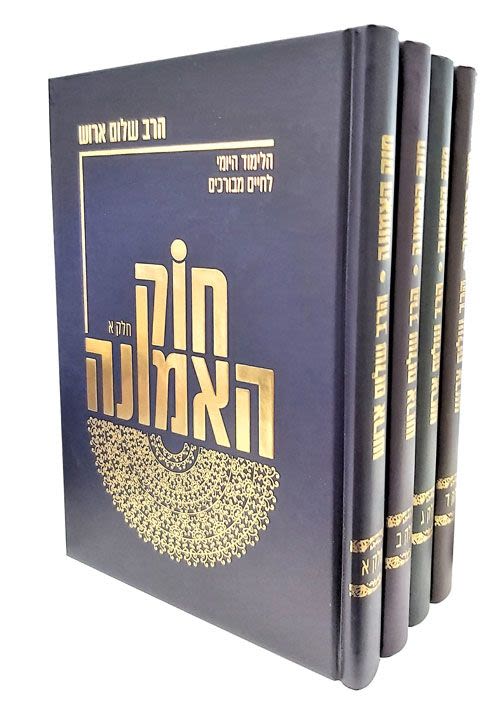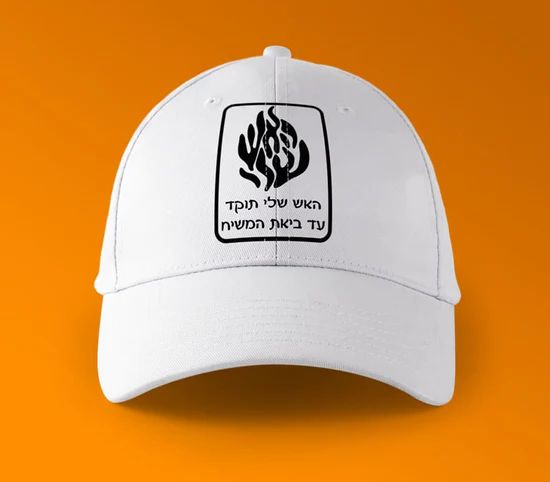
Ups and Downs
The Gemara calls money zuzim. It means “something that moves.” We never hold onto it. Before we are born, we don’t have a cent. After we die, we can’t take it with us...

A man gets into his car and drives to Jerusalem. He is traveling east from Tel Aviv. As he moves eastward towards the Holy City, he is going forward.
Another man gets into a rocket. He starts out in Tel Aviv and travels westward. In the same time it took the driver to make it through rush-hour traffic to Jaffa Gate, our pilot circles the world and touches down at the Western Wall Plaza.
In arriving at the same destination in the same amount of time, can’t he argue that in flying west, he too was moving forward?
A man gets into a rocket ship with a trajectory to Mars. The countdown reaches zero, the ignition starts, and he propels upward. Up and up he goes until he is in space. Once he gets to Mars, he lands on the  Martian South Pole.
Martian South Pole.
Did he go up or did he go down?
The Tanach tells the story of when Jehoshaphat, king of Judea, came down to visit the king of Israel. To yored, the term used in the Tanach (I Kings 22:2), literally means to “go down.” It’s a bit misleading because the kingdom of Israel was physically North to the kingdom of Judea. Perhaps the Tanach was alluding to the point that Judea had Jerusalem while Israel didn’t. It was a spiritual decline for anyone to leave – much like today when we refer to people who leave the nation of Jerusalem as yordim, people who go down, even if they are headed to places like America or Canada – which are also physically north of the Holy Land!
In an infinite and multi-dimensional universe, are up and down, forward and backward really what we think they are?
My friend is a student of emunah. About five years ago he came into a lot of money. Ever the humble sort, he always referred to it as “the gift G-d gave me.”
About a year ago, he lost most of it. The assets he had invested in started to go down and he saw his nest egg crack. I thought he would fall to pieces.
He almost did. For a while, he looked he was deteriorating. He sported new gray hairs. A crinkle or two appeared on his face for the first time.
Then, about four months ago, he looked revived.
I thought he’d gotten all his money back.
“No Dov,” he told me. “I am still in the same situation. I just discovered that what Hashem gave me during this time is far more valuable than all the money He gave me over the past half-decade.”
“Once I started to lose my money, I began to panic. It was the initial reaction. Every day, I would check my stock portfolio and every day, I would see how I’d lost another bundle. I didn’t want to sell, so I spent months, day after day, watching my money disappear. The small fortune had enabled me to learn half the day and take on a job that accommodated my learning. And now it wasn’t just my money fading away, it was the life I had grown to love.”
“I remembered this was all for the best and that G-d wanted me to improve somewhere. I increased my personal prayers. I started learning a little more. I began to focus on the laws of guarding my tongue. I started to monitor my overeating. I made so many changes to my life and still nothing happened. Hashem refused to return the money. I became very frustrated.”
I remembered the stress on his face.
“Losing my money was a trial from Hashem. He wanted something from me. He wouldn’t tell me what that was, so I had to work even harder. I started to wake up even earlier. I tried to make amends with everyone I had hurt in my past. I increased my davening. I pushed myself beyond any level of human performance I ever knew I was capable of.”
“I still kept losing. I poured my heart out to G-d. I wept. I begged. I reduced the luxuries I had grown accustomed to.”
“Then, in a flash it all ended.”
He must have got his money back. Hashem had given him redemption in the blink of an eye.
“No Dov, I am still in the red this year, but Hashem did give me redemption. I woke up one morning and looked in the mirror. There was someone else in the reflection. Someone I was very pleased to meet. In all this time that G-d was taking back the money He gave me, I had made so many improvements that I’d become a completely new person. Because it was my money at stake and I was so desperate, the energy and alacrity with which I put into these improvements was beyond anything I’d ever done. Unknowingly, I took on the greatest personal transformation in my life. I discovered that I can approach everything I do with focus and enthusiasm.”
“G-d didn’t take anything away from me. He gave me more access to my soul. Perhaps all this was, in the words of Duties of the Heart, one big trial from the Heavenly Court. The gavel may come down and everything may be restored. Whether my money will be returned to me or not doesn’t matter as much. I will always recall this period of my life as ‘the time G-d gave me.’ For every moment from now I have the chance to make a lot more out of my life.”
The Gemara calls money zuzim. It means “something that moves.” We never hold onto it. Before we are born, we don’t have a cent. After we die, we can’t take it with us. While we are here, it never stays in one place. We are always tested with difficulties. All of us suffer a financial setback from time to time.
What if a difficult period in our lives is really G-d giving us the greatest gift imaginable? What if down really is up?
* * *
Dovber Halevi is the author of Sex, Religion, and the Middle East, a book about personal holiness and happiness. He lives in Israel with his wife and three children.











Tell us what you think!
Thank you for your comment!
It will be published after approval by the Editor.